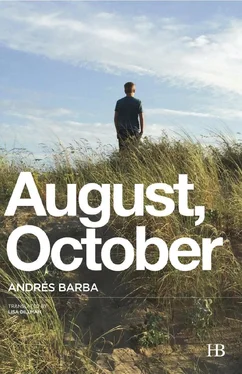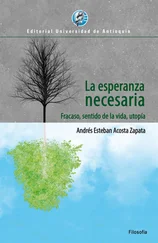On the third afternoon, when she died, it was like she’d just gone to sleep, like the other times. It took them twenty minutes to realize she was dead. He often thought about that later, that they’d been by her side for twenty minutes, tending to her as though she were alive. They’d spent twenty minutes tending to a corpse.
The warmth of the sun, the faint whisper of waves they could hear from the balcony of their rental house — all of it had become sort of removed. All that afternoon, he felt as if the four of them had turned into some wide-open, gaping thing , as if despite the fact that they didn’t part company for the rest of the whole day, they were no longer a unit, as if each of them had become aware of their own skin and their own name and it couldn’t be shared with the others, as if there were a plaster wall between them. When they addressed one another, their words, too, hung haltingly in the air. The darkening of their voices, the sudden remoteness of everything, the conviction that that was what death was, or at least how death began, made even their movements seem sluggish, solemn.
There were lots of things to be done, but he told his father he wanted to go for a walk. He texted Rivero, and then Tejas. They were at the dock. He’d have liked to think he was going to confide in his friends, but he knew they weren’t his friends and he didn’t even plan to tell them. There were only three days left of summer. Suddenly, it occurred to him that his pride could only be salvaged if he didn’t mention anything about Aunt Eli. Before leaving the house, he locked himself in the bathroom and tried to cry, but he couldn’t. He felt full, and enthralled by his own strange self-awareness, as though he were on the verge of making a discovery and in order to do it had to avoid conventional responses and wait, attentive.
Pablo, Marcos,Tejas, and Rivero had changed a little, too, or at least that’s how it suddenly seemed to him when he saw them on the dock. They struck him as subtler, shrewder, more somber. Up until then he’d felt conscious of the limits of their intelligence; now, in a way, he saw himself as less intelligent than them — diminished, somehow. Rivero’s beauty and strength struck him as near mythological.
“Where you been, princess? Haven’t seen hide nor hair of you for five days.”
“At the hospital.”
Now they’d ask him, he thought, and what could he say?
“Why?”
“My aunt, she died this afternoon.”
Tejas spat.
“Well, well, well,” said Pablo.
“His father died, too, two months ago — had a bad trip,” Rivero said, pointing to Marcos. “The guy was a bastard.”
“He was always a bastard. Now he’s a dead bastard,” Tejas remarked.
Marcos didn’t say a word. He sat down and stared at the dock, as though he were authorizing the conversation but didn’t want to encourage it. In a way, it was as if from within the habitually serious and inexpressive person that Marcos was, there had materialized an ordinary, easily wounded, delicate boy.
“They found him in the estuary. He must have gotten wasted, and the tide dragged him out and then brought him back to shore over by the breakwater, by the sea.”
“No one wanted him, not even the sea,” Tejas said.
Marcos smiled.
He spent a few more hours with them that afternoon, and although they didn’t bring it up again, he had a strange feeling, as if their eyes had turned sort of yellow, green, white, shiny — like the pines and the dunes. They seemed to have a hard, ironic look he’d never, until that moment, noticed — or perhaps he just hadn’t understood it, because he was so blindingly naïve. He liked the way they conceptualized and experienced death, which was actually hardly any different from the way they experienced and conceptualized sex. Death was absolute negation with no privileges. You could skirt death, describe its shape, weigh it in the palm of your hand, long for it or fear it, but you couldn’t find any logic to it. Just as they had no notion of the future, Pablo, Marcos, Tejas, and Rivero had no notion of anything distant. They were the princes of that rundown town that came to life only in summer; they were already, in their adolescent way, real men — wary, macho, triumphant. All four of them seemed almost the embodiment of an oft-imagined older brother, one who’d experienced many of the darker sides of life and yet was nearly always friendly and optimistic anyway. With them by his side, he didn’t feel deceived. They walked toward the beach, and as they sauntered down the esplanade, he hoped someone was watching, admiring, perhaps spying on all five of them through a little hole, or that someone was thinking Hate to bump into those guys in a dark alley at night .
And in fact someone was watching them through a little hole. He saw her coming toward them in the distance but didn’t realize who it was until she got right up close. It was the retarded girl who’d been with the others at the estuary — the messenger with her little stick. She was alone, walking along in a bikini, legs all sandy, a huge floatie ring under her arm, still inflated. He felt ashamed, as if the girl knew something private or had witnessed some barely memorable event that had then been recounted down to the most excruciating detail. She stopped in front of them.
“Where you going, Marita?”
“Home,” she replied, staring only at him.
“You know each other?” Rivero asked.
“That’s Frani’s boyfriend,” she explained, pointing at him.
“Right, in Frani’s dreams.” (Tejas)
“Frani says the other day he ate her pussy in the dunes, and that’s a boyfriend,” she explained, with the staggering candor and calm air of someone in possession of irrefutable evidence. It was as if the words that came out of her lips had been other, entirely acceptable words, everyday words. And as she spoke them, she eyed him triumphantly, defying him to have the guts to deny it.
“Who’d have thought — the princess!”
“What about you, Marita? How many boyfriends have you had this summer?”
“ Two.”
“Good ones or bad ones?”
“One good, one bad.”
“What about us?” Rivero asked.
“You’re bad,” she replied solemnly.
Then they watched her disappear toward the boxy houses at the end of the estuary. She walked with great dignity, with such a desire to be liked, such flair — like an actress on the red carpet on opening night.
“Would you look at that?” Tejas said. “That girl likes sucking dick more than most people like sucking on shrimp.”
“Till someone gets her pregnant. Then all hell’s going to break loose.”
“Out of the depths I have cried unto Thee, oh Lord. Lord, hear my voice; let thy ears attend my cry. If Thou should mark iniquities, oh Lord, who could then draw near? But forgiveness is thy way, that Thou may be respected.”
If he turned just slightly to the left, he could see everyone; there were only ten people in total: his parents, Anita, and Aunt Eli’s four or five friends. The overall impression it gave was sterile, tragic. They’d been forced to go out that morning to buy clothes, since all they’d packed were beach clothes — bathing suits and T-shirts. And the act of having to buy clothes, even, was irritating. The few shops in town had nothing remotely resembling mourning attire, and as a result they all ended up in white, or pastel tones, looking like little more than affluent holidaymakers.
“We’ll dress in white. If we can’t dress for mourning, we’ll dress in white; Aunt Eli would have liked that.” (Mamá)
“It’ll look like we’re going to a wedding.” (Papá)
And it did. Anita couldn’t sleep at all that night. She had dreamed about Aunt Eli and come to his bed, woken him up.
Читать дальше












